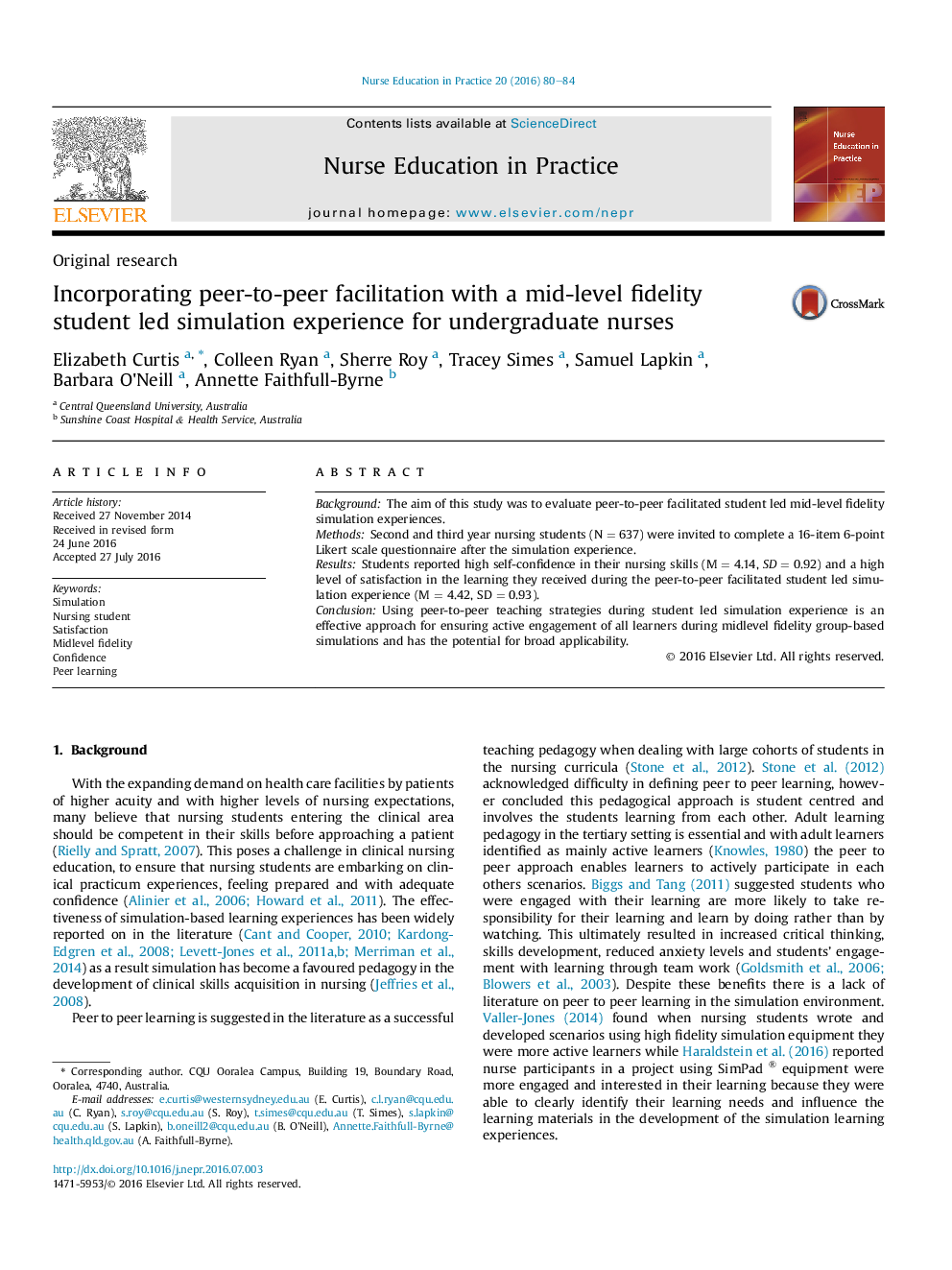| Article ID | Journal | Published Year | Pages | File Type |
|---|---|---|---|---|
| 366632 | Nurse Education in Practice | 2016 | 5 Pages |
•Peer-to-peer teaching strategies may assist in overcoming barriers to facilitating large cohorts and increase engagement.•Students reported high satisfaction and self-confidence after exposure to mid-level fidelity student led simulation experience (SLSE).•Mid-level fidelity equipment is a cost effective and can result in high levels of student satisfaction and self-confidence.
BackgroundThe aim of this study was to evaluate peer-to-peer facilitated student led mid-level fidelity simulation experiences.MethodsSecond and third year nursing students (N = 637) were invited to complete a 16-item 6-point Likert scale questionnaire after the simulation experience.ResultsStudents reported high self-confidence in their nursing skills (M = 4.14, SD = 0.92) and a high level of satisfaction in the learning they received during the peer-to-peer facilitated student led simulation experience (M = 4.42, SD = 0.93).ConclusionUsing peer-to-peer teaching strategies during student led simulation experience is an effective approach for ensuring active engagement of all learners during midlevel fidelity group-based simulations and has the potential for broad applicability.
